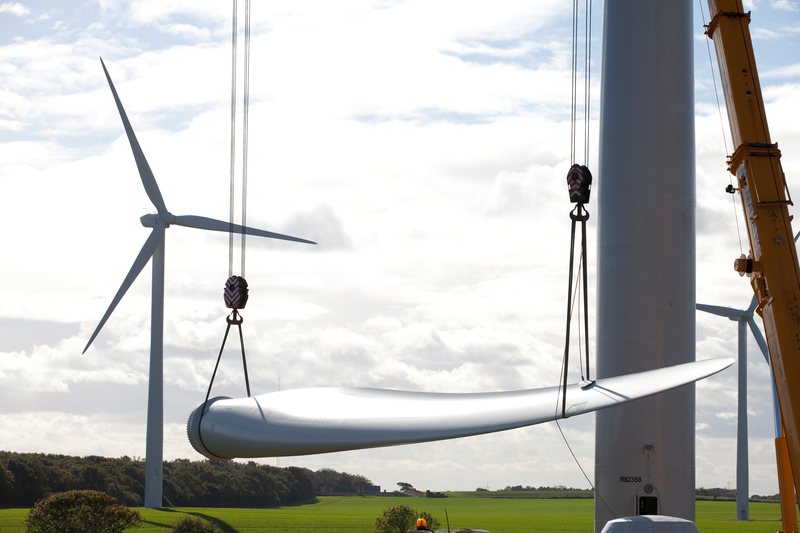
Spokespeople available for interviews. Contact press.uk@greenpeace.org
The Energy Security Strategy is being introduced at speed in response to Russia’s invasion of Ukraine and the concern over the dependence on Russian fossil fuels. Yet if touted policies briefed to the media come to fruition it will fail in its own terms. Few of the propositions will reduce UK fossil fuel usage in the short term, and the emphasis has shifted to nuclear and to new oil and gas licences, which will not deliver for well over a decade, and will not be the best measures to reduce bills, addressing the cost-of-living crisis.
Associated with that, the UN IPCC has flagged up we have *very* little time left to address the climate crisis because we continue to over exploit fossil fuels, and waste too much energy. Whilst there are important short term issues of energy security these must be solved through delivering CO2 emissions reductions at the same time, otherwise we swap energy insecurity for climate insecurity.
This landmark report from world scientists has emphasised the need to reduce how much energy we use, by cutting energy waste, and the need to swap harmful fossil fuels for easy-to-deploy solutions like renewables if we want to stand a chance of limiting warming to 1.5 degrees. Anything else is a sprint in the wrong direction.
Big bets on nuclear… a dangerous gamble
- Johnson has trumpeted ‘big bets’ on nuclear, which is apt because investing in nuclear is quite literally gambling away taxpayers’ money on projects that are generally late and represent poor value for money.
- New nuclear is complex, beset by huge delays and massively (and increasingly) expensive.
- Aside from the much-delayed Hinkley Point C reactor, which went to final investment decision in 2016 but will not start generating until 2027 at the earliest, the only viable nuclear project is Sizewell C. EDF hopes to generate by 2034, only if there are no further delays, and taking a further 6 years to be carbon neutral.
- This model of a nuclear reactor, the EPR, is well over time and budget wherever it is being constructed in Europe. The only place it actually started working – Taishan in China – closed in July last year after a few years of operation and has not restarted.
- Nuclear power also creates hazardous waste for which there is no long-term solution anywhere. ‘Advanced’ or ‘modular’ reactors aren’t necessarily any better and they still suffer from weapons proliferation risks. No Western model of a small modular reactor has yet been built and so claimed costs are speculative. The history of nuclear power is that claimed costs at inception are much higher when reactors are delivered.
- Squeezed households are increasingly likely to lose out, because the government recently adopted the controversial ‘Regulated Asset Base’ funding mechanism. This allows constructors to share financial risk with consumers with a levy on bills. In a worst case scenario consumers can pay the full cost of reactors that are never completed. This happened with two abandoned reactors planned for South Carolina, where bill payers are still on the hook for $9 billion.
New fossil fuel licences: ‘political and economic madness’, according to the the UN Secretary General
- They’re slow: New oil and gas licences take on average 28 years to get going, according to the North Sea Transition Authority’s own figures.
- It’s not ‘our gas’. Fossil fuels aren’t nationalised in the UK, so any newly extracted fossil fuels will most likely be sold to the highest bidder on international markets.
- Won’t help bills. As stated by Business Secretary Kwasi Kwarteng, Energy Minister Greg Hands, COP President Alok Sharma, and government advisors in the Climate Change Committee.
- The ‘wrong’ fuel. North Sea oil is heavy crude and we don’t have that kind of refining capacity in the UK. Our refineries are mostly geared up to use lighter, sweeter oils, which is a legacy of having the original Brent oil. Around 80% of the UK’s oil gets exported.
Not enough wind
- Government ministers have repeatedly said onshore wind isn’t popular when in fact the government’s own figures show that’s untrue. Onshore wind currently polls at around 80% support, compared to 17% for fracking. It’s also popular with Conservative voters.
Wasting time pandering to fracking fans
The government has launched a scientific review of shale gas. Instead of wasting time on this it should listen to its own BEIS department: “Fracking causes earthquakes, is hated by local communities, would take 5-10 years to kick-start, and won’t even lower the price. We need to get real: Lancashire isn’t Texas, any shale gas we do find won’t lower the European price, and Cuadrilla aren’t going to sell their gas below market rate, are they?”
What we need to see: quick and clean solutions, cutting energy waste, and buy-in from the Treasury and the Department for Transport too.
Cut home energy waste: Quickest and smartest way to get off gas and tackle high bills
- The government is obsessed with energy supply but has largely ignored the issue of energy waste. The UK has the least energy efficient housing in Western Europe which leads to elevated gas use as well as higher bills for households. The UK has almost ground to a halt on insulating homes and commercial buildings, and has the worst heat pump sales record in Europe.
- This approach makes no sense. If you have a bathtub that’s leaking, you should fix the leak – not just turn up the taps.
- Government must roll out home heating upgrades for 7 million homes by 2025. Bring back incentives for solar panels. Require all new homes to have heat pumps and solar panels – starting immediately.
- Energy efficiency measures for homes could cut Russian gas imports by 80% this year. Combined with a renewables drive, this means the UK could eliminate Russia from its gas supply completely in 2022.
Quick, clean and cheap renewables
- 649 UK onshore wind and solar projects, which already have planning permission. If they all went ahead, they’d save more gas than we currently import from Russia.
- Government must ramp up onshore wind and solar so they are well over doubled by 2030 making sure all the barriers in place are removed, and ensuring support from and for communities affected. Accelerate the offshore wind project pipeline, including a coordinated offshore grid, and ensuring development is delivered in harmony with nature and biodiversity.
- We need a smart energy grid fit for the 21st century. A grid that shares energy between European countries to make sure we all can cleanly power our economies and has better storage, including clean hydrogen, and flexible demand to securely deal with the shifts in energy production and consumption coming down the line.
- Handling variability in renewables output can be done through interconnection, demand management and storage through technologies like green hydrogen. Australia has shown it can be rolled out incredibly quickly, and has already got an agreement in place to export green hydrogen to Germany in 2024.
Get real on green jobs.
- The UK’s green economy has not grown since 2014, according to recent figures from the ONS.
- In its North Sea Transition Deal the government promised an integrated skills and people plan by March this year, but has yet to deliver. Government risks stranding thousands of fossil fuel workers in a declining industry, as we saw with coal mining, and plunging whole communities into deprivation.
- Government must recruit 45,000 green homes experts: Train up 25,000 installation engineers and 20,000 energy specialists to upgrade 7m homes by 2025 and secure a just transition for fossil fuel workers.
Don’t forget: petrol and diesel is energy
- Large scale public transport improvements – Government must level the playing field, so that every town has public transport operating to minimum standards like in Switzerland, with at least an hourly bus service, operating seven days a week. Make all new buses zero-emission from 2025 and bring in Oyster-card or contactless ticketing in all major cities. Make public transport free of charge, starting off with bus travel and prioritising those on the lowest incomes.
- A plan to go big on walking and cycling – Government must increase funding in England to at least £6 billion over the next five years. Local authorities and mayors in all major urban areas should create networks of low-traffic neighbourhoods. Give priority to pedestrians and cyclists along main roads by widening pavements, introducing cycle lanes, removing car parking spaces.
- A behaviour change campaign to lower the use of private transport fuel – as the International Energy Agency suggested last month; reduce motorway speeds, encourage greater working from home, enhance car sharing, avoid business travel including flying through alternatives, introduce frequent flyer levy to bear down on excess flying and stop airport expansion.
